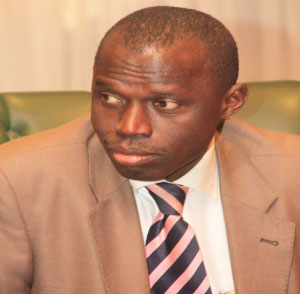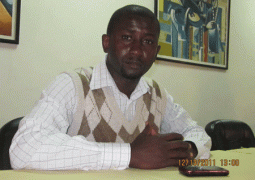
The Minister of Finance and Economic Affairs, Abdou Kolley, yesterday presided over the inauguration of the Board of the Financial Intelligence Unit (FIU) held at the conference hall of the Central Bank of The Gambia in
Consisting of members drawn from institutions that play crucial roles at different levels of government’s machinery in the fight against money laundering and terrorism financing, the new board is tasked with, among other things, assisting in the identification of proceeds of criminal conduct and the combating of money laundering and terrorist financing.
The FIU is also vested with functions and powers necessary for the effective discharge of the objects for which it was established.
Speaking at the inauguration ceremony, Abdou Kolley said with the inauguration of the FIU Board, The Gambia is taking resolute steps to ensure that the provisions of the new anti-money laundering legislation are effectively implemented.
Kolley recalled that in April 2008, The Gambia as part of her engagement with the Inter-Governmental Action Group against Money Laundering in West Africa (GIABA), a specialized agency of ECOWAS, conducted an on-site mutual evaluation exercise to assess the country’s level of compliance with anti-money laundering and combating the financing of terrorism standards.
“In November of the same year, the GIABA plenary adopted a report identifying a number of deficiencies in the legal and institutional frameworks of the country, for which the Government of the
Kolley noted that in an effort to remedy the situation, and bring our legislation in line with international standards, the Money Laundering Act 2003 was repealed with the enactment of the Anti-Money Laundering and Combating of Terrorist Financing Act 2012.
“The new legislation ensures that the provisions of our law are in sync with the Financial Action Task Force 40 recommendations against money laundering and the 9 special recommendations against terrorism financing,” he added.
“I cannot emphasize enough the importance of an effective and functional FIU, not only because it helps the country meet it requirement as per the GIABA technical commission recommendations, but also due to our vulnerability as small economy with a developing financial sector, within a fragile sub-region,” said the minister.
Kolley went further to commend the members of the board for accepting the challenge of putting in place efficient institutional arrangements and ensuring effective implementation of the law.
The Attorney General and Minister of Justice, Lamin Jobarteh, told members of the board that their task is very important.
“If you properly executed your duties, you are doing all of us a great thing, but if you fail to do so, you are just as bad as those that you would be working on,” he stated.
Noting that money laundering and terrorism are the world’s biggest crimes today, Jobarteh challenged members of the FIU board to do their best to ensure that the purpose for which the Act was promulgated is strictly adhered to.
Amadou Colley, Governor of the Central Bank of the
“In The Gambia, the fight against money laundering and terrorist financing dates back to 2002 with the enactment of the Anti-Terrorism ACT 2002,” he stated.
According to him, The Gambia passed into law the Money Laundering Act, 2003 in response to various international conventions on the fight against money laundering and terrorist financing.
The inauguration of the board, he added, marks the commencement of the establishment of an independent FIU as enshrined in the AML/CFL ACT 2012.
Meanwhile, the FIU consists of a representative of the Central Bank, as chairperson, the permanent secretary in the ministry of finance, permanent secretary in the ministry responsible for the interior.
It also includes one senior police officer not below the rank of commissioner appointed by the minister for the interior, the Director of the FIU, the Commissioner General of the Gambia Revenue Authority and the Solicitor General and Legal Secretary.


